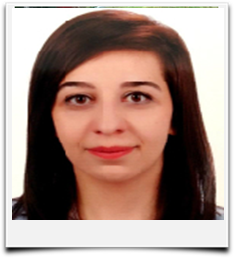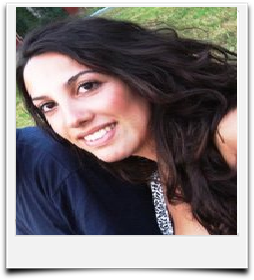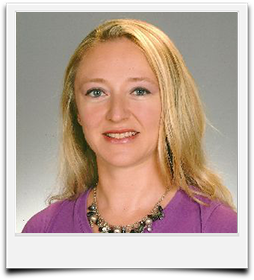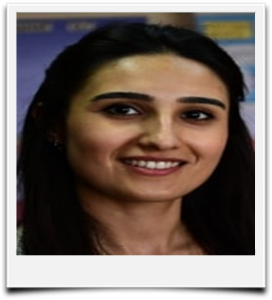 |
 |
 |
 |
| Lecturer | Lecturer | Lecturer | Lecturer |
| Dr. Nilay Ölekli Sönmez | Dr. Sakine İlkim Arı | Dr. Esra Gölge | Fazilet Barcin |
| Head of Departmen |
Education Start Date: 2019-2020
Programme Language: Turkish
Programme Quota: 40
Admission and Registration Requirements
Our programme accepts students with the TYT score type taken from the YKS exam conducted by ÖSYM. Students from vocational high schools are not accepted to our programme without examination. Students with high school and high school equivalent diploma who meet the provisions specified in the relevant legislation of the Council of Higher Education and the relevant regulations of Akdeniz University are accepted to our programme.
Programme Description
The Child Development programme is a department that trains Child Development Educators who provide services to children, families, educators and society with theoretical and practical training programmes that support all developmental areas (mental, language, motor, self-care, social and emotional) of children between the ages of 0-18 who show normal development, have special educational needs, need protection (living in institutions, working, refugee and criminal children) and hospitalised children. The education period of the associate degree programme in child development is 2 (two) years. The universities where the programme is located recruit students with YGS-4 score type. Those who graduate from the department receive the title of "Child Development Vocational Staff". Within the scope of child development programme; child development, special education, inclusive education, child health, child nutrition, child psychology and mental health, family education, drama, play, music, visual arts, educational material development, etc. training is given on the subjects.
Aim of the Programme
The main aim of the Child Development Programme is to train staff who adopt the importance of child development and education, recognise the developmental characteristics of children aged 0-18, gain knowledge about the habits and needs of children, and take precautions against the problems that children may encounter. In addition, the programme aims to train technical staff who can recognise children in need of special education, who can organise the appropriate educational environment for these children, and who are conscious about maternal health.
Our Vision
To train child development professionals who act within the framework of ethical rules, have the competence to work in different sectors (health, education, justice, etc.) in the field of child development, respect individual and cultural differences, are creative, open to cooperation, dynamic, have high problem solving skills and are successful in their field.
Our Mission
In line with the rapidly changing requirements in science, technology, education and health sectors, it supports the development and education of children and young people between the ages of 0-18 with different characteristics (typically developing, with special needs, dragged into crime, hospitalised, immigrant, in need of protection, etc.) with an education system in accordance with universal criteria. The aim of this programme is to train professional child developers who support the development and education of children and young people (typically developing, special needs, criminal, hospitalised, immigrant, in need of protection, etc.), enlighten families and society about the healthy development and education of children, evaluate the development of children in a multidimensional way, develop, implement and follow support programmes, develop developmental early intervention programmes, have the knowledge and skills to empower children at risk and their families, have knowledge and skills in care, protection, education and research. In addition, to provide consultancy on child development to institutions and organisations that need and request it, to cooperate with relevant non-governmental organisations in order to raise social awareness about the importance of child development, and to produce projects for the benefit of children and society.
Sector Needs
In the Child Development Programme, students graduate equipped with the ability to prepare programmes suitable for developmental levels and to make environmental arrangements, to follow the development of the child in different areas and to make new arrangements, to cooperate with families, people who provide services in the field of child development, institutions and organisations, and to raise awareness of the society on these issues. Graduates meet the needs of the sector as teacher assistants in pre-school and special education institutions.
Employment Opportunities
- In special education and rehabilitation centres as administrator, teacher and teacher assistant,
- In private pre-school education institutions as administrator, teacher and teacher assistant,
- As a paid teacher in kindergartens and primary schools affiliated to the Ministry of National Education,
- In the hospital's day-care centres,
- As a parent educator in private research and consultancy companies,
- As a foster mother in Maternal and Child Health Centres, in inpatient care institutions
- Social Services Child Protection Institutions
- As a designer in the children's publications and toys sectors
- As a children's animator in the tourism sector
- Parents working as child care workers in the care of their children, etc. can work in studies related to child development.
Graduation Requirements
In order to graduate from the programme, students must fulfil the success conditions in the Akdeniz University Education and Examination Regulations.
Vertical Transfer Programmes
Students who graduate from the Child Development Programme can transfer to the following undergraduate departments of the faculties with DGS (Vertical Transfer Examination) according to the 2019 associate degree graduation areas published by ÖSYM.
Child Development
Preschool Education
Special Education Teaching
Social Work
Son güncelleme : 26.07.2023 13:05:18
